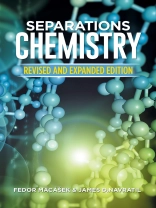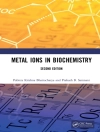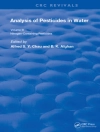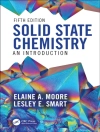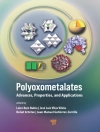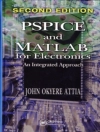Separation of chemical species is a gate to final success of synthesis and preparation of compounds in pure and defined state. Variability of natural and artificial mixtures to be treated is enormous. Task of chemistry is to separate components of homogeneous mixtures (the gaseous and liquid solutions). The book concentrates on understanding the basic philosophies of both equilibrium and nonequilibrium chemical thermodynamics and engineering performance that lay in principle of separation technique such as distillation, crystallization, centrifugation, sorption, membrane separations, chromatography, and liquid-liquid extraction. Specific phenomena connected with photochemical separation, isotope composition, and radioactivity are discussed as well. The book is written for advanced students of chemistry having the knowledge of physical chemistry. Calculation examples are based on the international system of units. Unique list of over 1, 300 full references covers scientific literature of the eighteenth to the twenty-first centuries.
عن المؤلف
Dr. James Navratil has more than forty years of experience in environmental management, waste and water treatment research and development, separations science and technology, and actinide chemistry and radiochemistry, acquired primarily at the US Department of Energy (DOE) Rocky Flats Plant and through his assignments with the International Atomic Energy Agency (IAEA), Chemical Waste Management, DOE’s Energy Technology Engineering Center, the Idaho National Engineering and Environmental Laboratory, Rust Federal Services, and currently, Hazen Research Inc., where he is a senior technical advisor. Accomplishments in the development of separation, recovery, and waste treatment processes have earned Dr. Navratil numerous honors, including the annual award of the Colorado Section of the American Chemical Society (ACS), Rockwell International Engineer of the Year, two IR-100 Awards, and three society fellowships. He was a member of the IAEA team awarded the 2005 Nobel Peace Prize and, in 2006, received the Lifetime Achievement Award for Commitment to the Waste-Management, Education and Research Consortium (WERC) and to WERC’s International Environmental Design Contests.
Fedor Macášek was born 1937, Žilina, Czechoslovakia, graduated from the Moscow State University (USSR) in 1962 in physical chemistry and radiochemistry. Since his graduation, he has been working at the Faculty of Natural Sciences of Comenius University in Bratislava; 1968, Ph D.; 1984, DSc; 1985, full professor of nuclear chemistry; 2004, Professor Emeritus.
